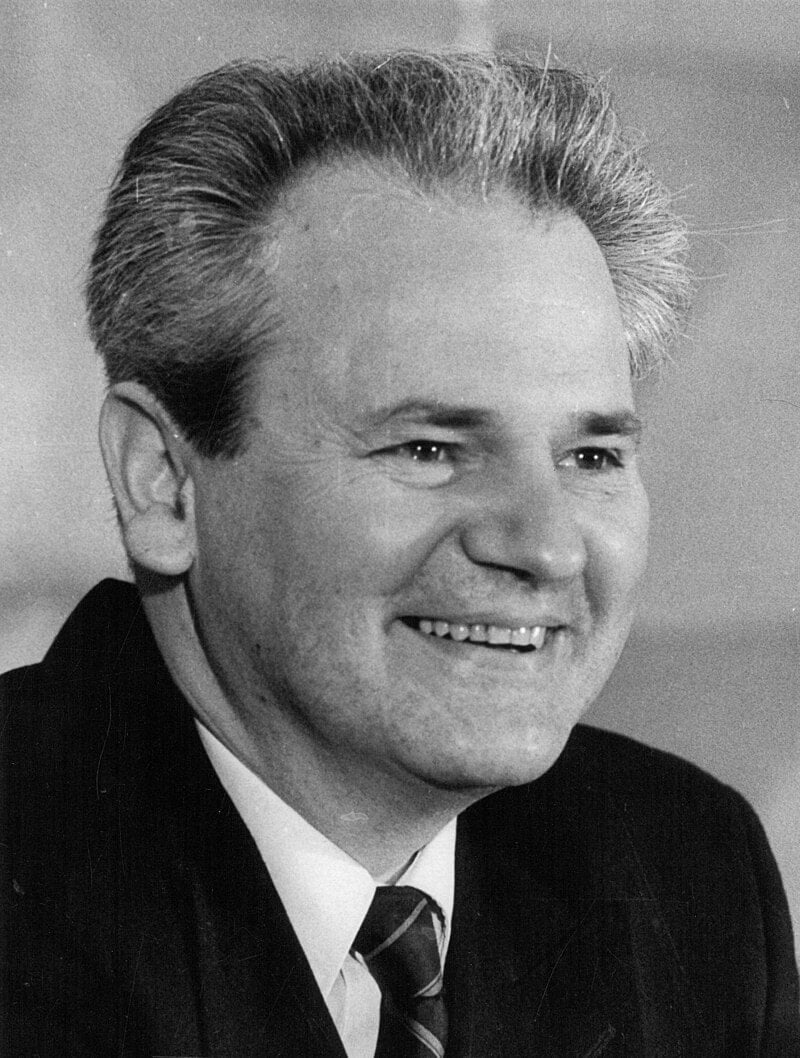
Over a bloody three years, hundreds of thousands of former Yugoslav residents were dislocated, imprisoned, raped, tortured, starved, and massacred as Serbian nationalists pursued an agenda of ethnic cleansing and carved out a homeland for his own people. The violence grew from the ruins of the Socialist Federal Republic of Yugoslavia, a conglomeration of Serbs, Croats, Bosniaks, Slovenians, Albanians, Macedonians, and other ethnic groups united under a single flag. Yugoslavia collapsed when the growth of nationalism inflamed ethnic tensions to the point that, on June 25, 1991, regions with Croat and Slovene majorities declared independence for the nations of Croatia and Slovenia.
The retaliation by the Serb-dominated Yugoslav People’s Army started a series of ethnic wars which would end all pretenses of Yugoslav unity and produce Europe’s second genocide of the century.
In an interview with Charles Stuart Kennedy beginning June 1998, Ambassador Thomas M. T. Niles, who at the time was Assistant Secretary in the Bureau of European Affairs, recalls the American hesitance to recognize Croatia and Slovenia and their fears of encouraging years of bloodshed in the Balkans. These fears were later justified and, although Croatia escaped the majority of the ethnic cleansing, their neighbor Bosnia suffered years of Serbian aggression and cruelty. Read more about Bosnia, including how the U.S. consulate dealt with the flood of refugees and the negotiations which led to the signing of the Dayton Peace Accords.
“The devil we know”
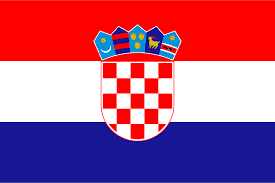
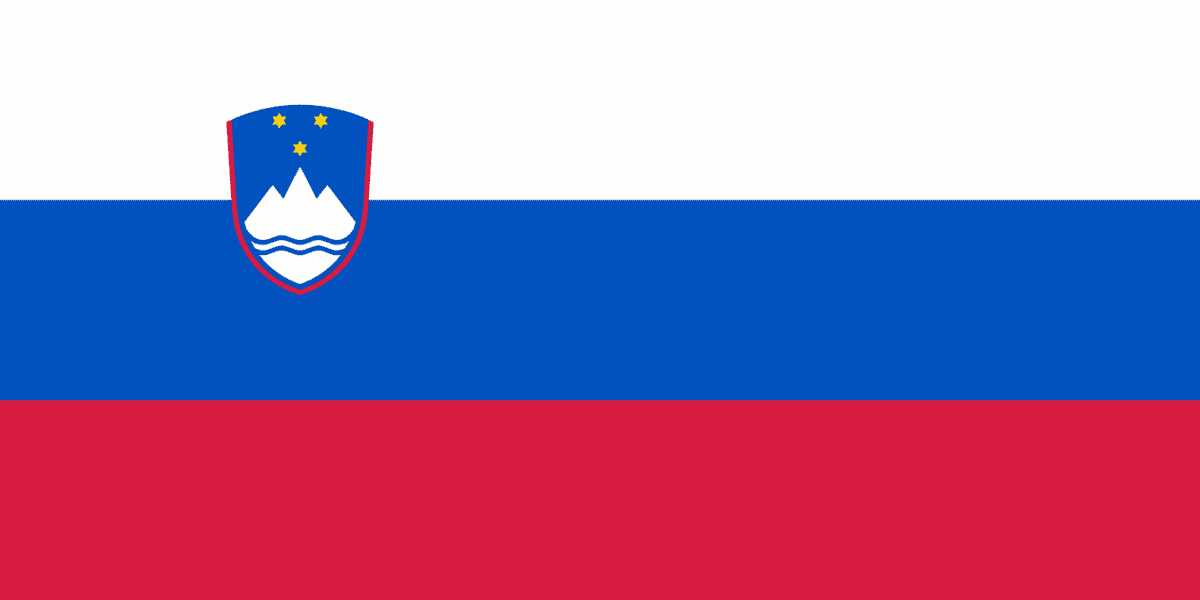
NILES: Things were moving very fast and not necessarily in the right way. There was close to total chaos in the Baltic States….Yugoslavia was clearly in a state of profound crisis. Croatia and Slovenia had declared independence on June 25, 1991, and by August 1, Slovenia already was pretty much out of Yugoslavia. The fighting in Croatia and the efforts by the Serbs to detach large portions of Croatia in Slavonia and the Krajina regions [Serb dominated area within Croatia] had begun already in August….
There was no time for an in-depth discussion. Secretary Baker, whom I saw frequently and talked to on a daily basis, gave rather clear instructions – things to do and things not to do. I worked most closely with Bob Zoellick, who at that time was Counselor and shortly afterwards also took on the Under Secretary for Economic Affairs position. It was pretty clear what our objectives were, very broadly expressed by President Bush— a Europe whole and free, with democratic governments and free market economies. There was an effort to prevent the emergence of crises which could involve major commitments by the United States, or pose major problems for the United States.
What this amounted to, frankly, was an effort on the part of the Bush administration, led by Secretary Baker, to prevent the disintegration of states, that whatever their merits might be, that were part of European structure and whose collapse did not necessarily promise greater stability….
In the summer and fall of 1991, our general approach was to see whether these structures, which were obviously faulty, the political structures of Yugoslavia and the Soviet Union, could not be modified in some way to accommodate the forces for change within the countries, but at the same time preserve some sort of coherence there.
Reckoning as we did that both the political and the economic downsides of breaking these units up into their component parts were considerable, we tried, unsuccessfully, to control and channel the process. But it was essentially uncontrollable.
Q: In other words, the devil we know is better than the devil we don’t know.
NILES: No question. But, let me just say, it is hard to look at what has happened in the Soviet Union and Yugoslavia today and say that what replaced the political structures that existed [as]of September 1, 1991 are better from the point of view, first and foremost, of the people who live there, and also of the United States.
You can argue that we are better off with a broken up, weaker Russia, and an independent Ukraine, etc. I am not all together sure. I think the final story hasn’t been written there…. Nobody as far as I am aware could make a case that anybody, except the Slovenes, has benefitted as a result of the breakup of the Yugoslav Federation. The chaos of the millions of refugees, endless destruction, death, and misery which is going on today, particularly in Kosovo, but also in Bosnia and elsewhere, is just unbelievable….
Secretary Baker clearly saw what was about to happen and told the leaders of Yugoslavia when he met them in Belgrade on June 21, 1991 that they were on a course toward “civil war and bloodshed.” This was directed particularly at the Slovenes and Croatians, who were moving toward formal declarations of independence. Essentially, their answer was, “To hell with you. You don’t know what you are talking about.” Five days after Secretary Baker was in Belgrade, they declared independence on June [25], 1991, and the rest is history.
“We tried to discourage the fracturing of the country, to discourage independence”
Secretary Baker saw that once you took Croatia and Slovenia out, in fact, once you took even little Slovenia out of the Yugoslav Federation, it was like a house of cards. You took one small piece out, and the whole structure became unstable…..
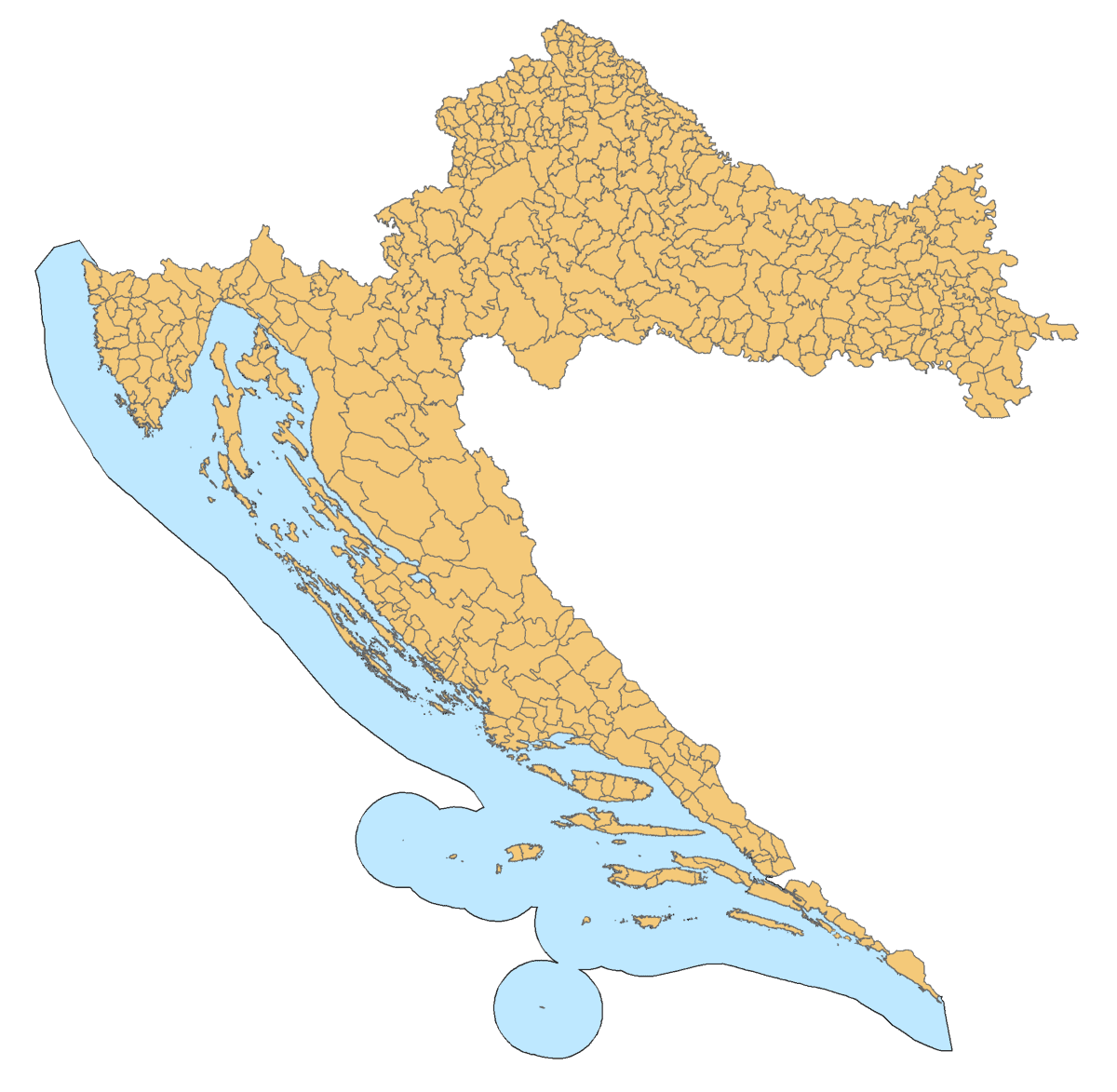
We tried to discourage the fracturing of the country, to discourage independence, keep the EU from recognizing Croatia and Slovenia.
That was our big push in the fall of 1991, against the wrong-headed and nutty policies of the Federal Republic of Germany, specifically [German Foreign Minister Hans-Dietrich] Genscher aimed at recognition of the independence of Slovenia and Croatia. Genscher recognizes it now and refers to that policy as the greatest mistake of his career….
It was clear that the Europeans wanted to get involved. They felt that they should, and indeed, they were right. There was a strange coincidence of circumstances in the summer of 1991, which had an impact on the way this Yugoslav crisis developed, in terms of the European role.
Remember, we were coming off the Gulf War, which had concluded in March 1991. Everybody in Europe recognized that the Gulf War had been the United States against Iraq, with significant help from the Europeans. The Europeans admired that, but at the same time, they felt somehow envious that the United States had the dominant role.
They, after all, were moving toward the establishment of the European Union. They felt that they needed something to demonstrate their capability, just as the United States demonstrated its capabilities in the Gulf War. That was one element.
The second element was the Dutch Presidency. The Dutch assumed the Presidency of the European Union on July 1, 1991. The Dutch are, by nature, activists. They are wonderful allies. They are, more often than not, on the right side of issues. I admire them. They are tough, resilient, and smart. Their Foreign Minister at the time, Hans Van den Broek, who is now a Commissioner of the European Union, was an active, dynamic leader.
So, you add these elements, including the European sense that they had been involved in the Gulf War but that it was the Americans’ show, and they were a sideshow, and you had the sense in Europe that it was the time for Europe to do something big in foreign/security policy. Yugoslavia is in Europe, unquestionably, for better or worse. Then, you had an activist Dutch instinct, and Hans Van den Broek, who was an activist even among the Dutch, as the President of the European Council. The mix was unfortunate….
In any case, Hans Van den Broek came to Washington on July 9-11, 1991 for his initial meeting as President of the European Council of Ministers with Secretary Baker. Van den Broek’s approach with Secretary Baker was: “Hey, you guys did a fabulous job on the Gulf War. It was wonderful. The next big problem for us is going to be Yugoslavia. That is in Europe. We, the European Community, will take the lead.”
Secretary Baker, who had just been there and thought the Yugoslavs were all crazy, and didn’t see anything particularly good or beneficial coming out of Yugoslavia, said, “Fine.” In retrospect, these two outstanding leaders were both wrong in this. Van den Broek had to know that the European Community couldn’t take the lead on Yugoslavia. They were incapable of doing it because they didn’t agree on what they were going to do….
At that time the atrocities and tragedies hadn’t yet started, so there was no big pressure…to get involved in Yugoslavia. We had just fought a major military engagement against Iraq…. The idea that somehow we ought to leap from Desert Storm into what might be the Balkan storm, people thought was crazy.
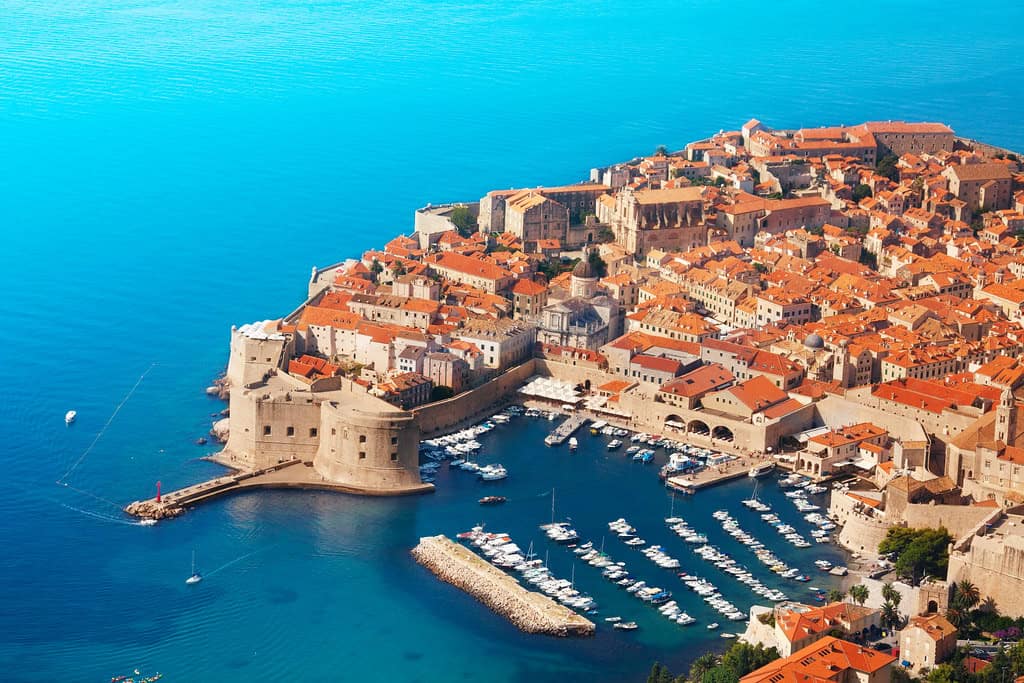
Well, in September and October, the fighting intensified in Croatia. The Serbs used the Serbian population in the Krajina and Slavonia to set up these so-called “Republics” of Slavonia, and Serb Krajina, driving the Croatian population out in most cases.
The Serbian Army began, by the end of October, its assault on the town of Vukovar, standing off on the Serbian side of the Danube and shelling the city with millimeter guns, just lobbing shells into the town, gradually destroying it and killing people. At the same time, the Serbs were bombarding Dubrovnik from near Trebinje in southwestern Bosnia-Herzegovina.
That was the time, looking back on it now, when some form of U.S. military intervention might have had an effect. In the Bureau, we talked about whether air strikes on [the] Serbian artillery that was bombarding Vukovar and Dubrovnik, to pick two worthy cases, would send a hard message to Milosevic that he was engaging in unacceptable behavior.
But when we tried to move this discussion beyond the strictly theoretical, we ran into a buzz saw of opposition, not in the Department itself but the other agencies….In retrospect, I think we missed a tremendous opportunity. We should have gone in, not just with one strike, but with some serious military actions….How it would have been read by Milosevic, who knows. But, the idea that there are limits to what was acceptable was an important message to send.
In October 1991, Ambassador Zimmerman came back to Washington with essentially that recommendation. We met in the morning with Deputy Secretary Eagleburger. I thought that Larry supported Warren’s idea. After lunch, the three of us then went to a small meeting in the White House sitroom [situation room] with Bob Gates, then Deputy National Security Advisor, Lieutenant General Shalikashvili, then Military Assistant to the Chairman, Lieutenant General Ed Leland, then head of J-5 (Policy and Plans) in the JCS, Steve Hadley, then Assistant Secretary of Defense for International Security Policy (OSD/ISP) and David Gompert, the NSC man for Europe. Dick Kerr and John Halverson were there for CIA. I believe they were the DDO and DDI, respectively.
Warren presented his proposal for air attacks on the Serbian artillery being used against Vukovar and Dubrovnik. I thought he did an excellent job. The other agency representatives present were either opposed (OSD, JCS and Gates) or non-committal (Kerr, Halverson, Gompert and Eagleburger). I supported Warren.
At one point, Gates left to call General Scowcroft, who was traveling with President Bush. Gates came back to the meeting with the word that Scowcroft and the President would not support such an action. And that was that. We never again reached even that degree of specificity in discussing a United States military response to Serbian aggression during the Bush Administration.
“The Pentagon was dead set against any U.S. military involvement”
Q: Did you sense, at this time, that there seemed to be an awful lot of reliance on almost indiscriminate artillery firing?
NILES: We are talking about the Serbian Army, the so-called Yugoslav National Army, the YPA. That was an army developed by [Yugoslav President Josip Broz] Tito but very much on the Soviet model, and based on Soviet military experience in the Second World War. Now, what would that Soviet military experience in the Second World War suggest? Among other things, it would emphasize massive artillery bombardments, such as the Soviets did to Warsaw and Berlin….
For example, at one point in October or November 1991, the Serbs were firing FROG [Free Rocket Over Ground] missiles at Zagreb. Now the FROG is about as accurate as shooting an arrow into the wind. You know it is going to hit somewhere, but you don’t know exactly where….Wherever they came down, they did a lot of damage but, even more, it terrorized the civilian population. But that was very much Milosevic’s style.
One of the lessons I took away from this experience is that the State Department was at a pronounced disadvantage because none of us had the military knowledge or capabilities to say, “Well, here is the operational plan.” We were dependent upon the Pentagon, and they were dead set against any U.S. military involvement…..
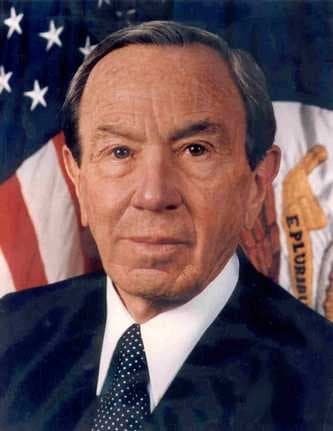
The other side of their position was that if the President were to decide to use force in Yugoslavia, we were going to go in and really clean things up. I remember at the beginning of the Clinton administration, Secretary [Warren] Christopher was being educated in a crash course in Yugoslavia…. Secretary Christopher said to the group, “Well, now, if we were going to intervene in Bosnia militarily to try to stop the fighting and to establish stability, what would that require?”
General [Barry] McCaffrey looked across the table at the Secretary of State, and said, “Well, Mr. Secretary, I think that would take a field army….” You could see all the blood rush out of Secretary Christopher’s face.
He said, “You are telling me that if we want to get involved in Bosnia, in an effective way, it would require 400,000 troops?” The General said, “Anything less, would be too big a risk.” That was the attitude….. As General Powell used to say…at NSC [National Security Council] meetings, “You can punish from the air, but you establish realities on the ground.”
In the fall of 1991, we sought to persuade the Europeans not to recognize the Slovenes and the Croatians as independent countries. That was a strong pitch by Secretary Baker. Our pitch was, “Don’t recognize their independence, because that forecloses the possibility of putting some new structure in.” This was our argument at the time.
“If you think that what is going on in Croatia is bad, wait until something like this happens in Bosnia.” We were not oblivious to the big danger that was lurking in Bosnia. “Let’s see if we can force these guys to confederate. Don’t recognize their independence.”
Q: During this time, were we saying, “We think you fellows ought to be in some sort of loose union, because all hell will break loose otherwise?”
NILES: Hell had broken loose. Not all hell, but a good part of hell…..As I was saying, this was an initiative to create a Yugoslav Confederation. That idea was alive, at least until most of the world, or an important part of the world, recognized the independence of Croatia and Slovenia. Once that happened, it was awfully hard to “put Humpty Dumpty back together again….”
“The least bad course of action”
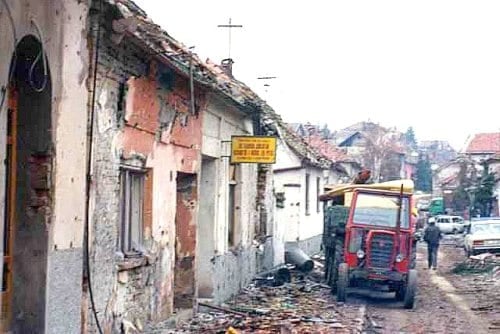
During January 1992, an armistice was signed between Croatia and Serbia, and the fighting largely stopped in Croatia…. Attention then turned to Bosnia. It was inevitable, particularly after the fighting ended between Serbia and Croatia. The question came up, “Well, what about Bosnia?” The position of the Macedonians and the Bosnians was that they could not stay in a confederation with Milosevic without the Croatians and the Slovenians….
I remember a meeting that we had with [President of Macedonia] Gligorov in December 1991. We said, “Hey, let’s keep working on this, and see if we can work out a Confederation.” He said, “Come on, a confederation with Milosevic? With two million of us and ten million Serbs?”
We said, “Well, you would have Bosnia and Montenegro with you.”
He didn’t dismiss Bosnia, but he said, “Look, without Croatia and Slovenia, this is not a runner.” We really didn’t have an alternative. EU recognition of the independence of Slovenia and Croatia killed our policy, which was based on this confederation idea.
We turned our attention to Bosnia. The question was, at that time, was, “Should Bosnia move toward independence?” We told [President of Bosnia] Izetbegovic, “Cool it. Don’t do it.” [Ambassador]Warren Zimmerman was down there several times, saying, “Go slowly, see what happens. Don’t shake the tree.” But Izetbegovic was under a lot of pressure from people on his team….
In the meantime, the Serbs in Bosnia were agitating, using the Yugoslav Army to create problems. Bosnia was the heart of Tito’s military system. A large part of the munitions and arms were stored there, in underground depots. They even had an underground air field in northern Bosnia, with hangars built into the mountains…..
The next stage in the tragedy was the Bosnian referendum, which happened to be on February 29, 1992. The question was, “Should we go for independence, or should we remain in Yugoslavia?” The Serbs boycotted it. The Croatians participated, as did the Bosnians. The vote, predictably, was strongly in favor of independence. We had discouraged Izetbegovic from going forward with the referendum, but he did it anyway. By all accounts, it was well run and very democratic, but the vast majority of the Serbs boycotted it.
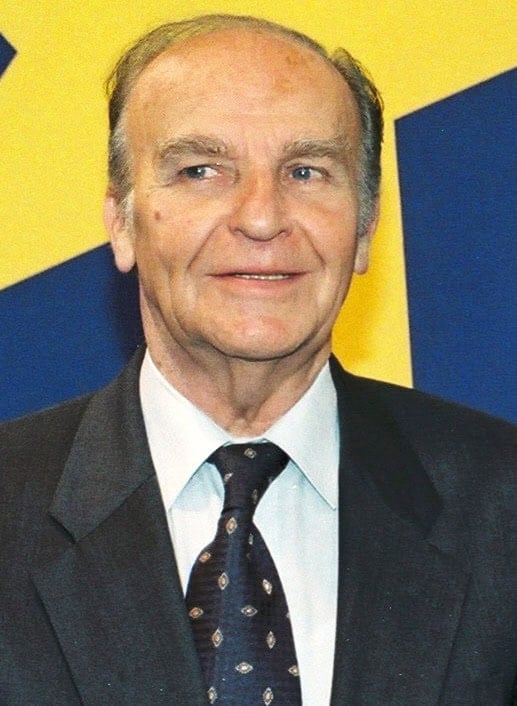
In retrospect, the referendum was a catastrophic error on Izetbegovic’s part because it forced the issue of Bosnian independence at a time when they were totally incapable of doing anything about it.
Even before the referendum, the Yugoslav Army was supporting the Serbs in Bosnia and was beginning the process of dismembering the territory, and establishing stronger military positions. There were demonstrations in Sarajevo by the population there against the Yugoslav Army, which was equivalent to the Serbian Army…..
In any case, on April 5, 1992, Izetbegovic declared the independence of Bosnia. The fighting had really broken out during March….
We were faced with the question of what to do. We decided that the least bad course of action, and it wasn’t the greatest, but the least bad course of action, was to recognize Bosnian independence, along with that of Croatia and Slovenia. So, we joined with our European allies on the April 6, 1992, I think it was, in recognizing independence of all three states….
Of course, the fighting intensified….
